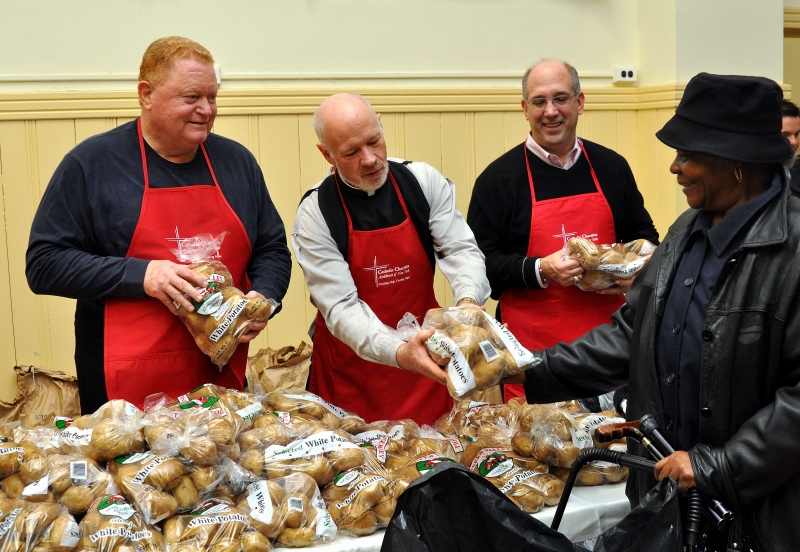I’ve started reading “Rediscovering Catholicism” by Matthew Kelly and I wanted to share a one quotations from the opening pages:
“Every single day the Catholic Church feeds, houses, and clothes more people, takes care of more sick people, visits more prisoners, and educates more people than any other institution on the face of the earth could ever hope to…
The Catholic education system alone saves American taxpayers eighteen billion dollars a year…
This year, catholic charities will provide 2.2 million free meals to the hungry and the needy of Chicago. We don’t ask them if they are Catholic – we just ask them if they are hungry”
– Matthew Kelly, Rediscovering Catholicism
When there is a scandal in the Catholic Church it is blasted from every media outlet so that the whole world gets to hear about it. Yet how is it that the continued good works of the Church so often go unreported?

Aside from the fact that it’s not as sensational, it’s not news! This is the same service which the Church has offered the world every day for two thousand years. It ceased being news a long time ago…





 Yesterday I published a
Yesterday I published a